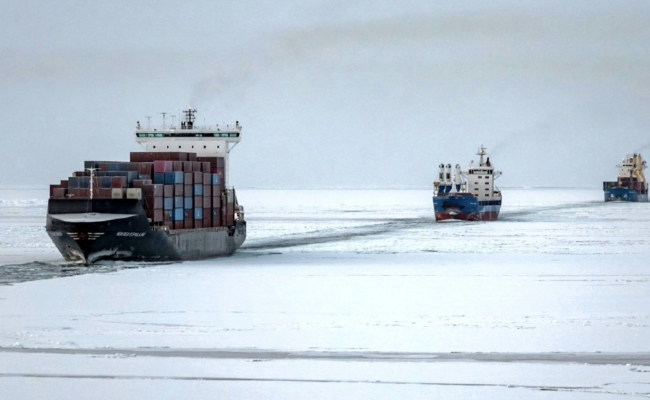EU Approach to Russian LNG Remains Fractured as Dutch Imports Increase

LNG carrier in the port of Rotterdam, Netherlands. (Source: Kees Torn under CC BY-SA 2.0)
The upcoming EU transshipment ban for Russia LNG may already be having an unintended consequence: more imports of liquefied natural gas into the EU. But experts contend it is too early to tell and call for an EU-wide approach, rather than individual actions by member states.
The EU continues to look for a unified approach to restrict the flow of Russian natural liquefied gas (LNG) into Europe. While a transshipment ban is set to take effect in March 2025, it remains unclear what the exact impact will be.
The measure may lead to greater volumes of super-chilled gas from Yamal LNG being imported rather than just passing through EU ports.
This may already be happening ahead of the ban, Dutch Energy minister Sophie Hermans (VVD) explained this week in a letter to the parliament.
Doubled
She contends that in anticipation of the ban traders may be shifting import routes to EU terminals with additional capacity, including the GATE facility, Rotterdams main import terminal.
Imports at the terminal have doubled in recent months.
A bit untimely
Energy sector analysts are however skeptical that the current doubling of imports at Rotterdam is related to the pending March 2025 transshipment ban.
Too early
“To link this increase to the not yet implemented transshipment ban is a bit untimely,” says Angelos Koutsis, Energy Policy Officer at Bond Beter Leefmilieu at Belgian environmental and nature organization.
It is simply too early and there is not enough data to draw any form of conclusions, according to Koutsis.
“Concluding that the sudden increase in Russian LNG imports at the Gate terminal (NL) is caused by the not yet implemented transshipment ban does not align with the data,” he continued.
“It is possible in the future that the transshipment ban will cause an increase of Russian LNG imports. […] So far we can just conclude that Yamal LNG is having a productive year.”

Angelos Koutsis, Energy Policy Officer at Bond Beter Leefmilieu at Belgian environmental and nature organization. (Photo: Bond Beter Leefmilieu)
Especially France, Spain and Belgium continue to receive record-level shipments from Russia, data for the first half of 2024 show.
No EU-wide approach for LNG ban
The variability of Russian imports of LNG between different EU ports and temporal fluctuations points to the larger issue; no coordinated EU-wide approach on how to phase out deliveries from Yamal LNG.
“We want to responsibly cut Russian gas imports and this development is therefore worrying and undesirable,” Dutch Energy minister Sophie Hermans said.
“A common European approach is crucial,” she added, according to Reuters.
May decline
No new measures can be expected during the current Hungarian presidency of the EU, due to the country’s position vis-à-vis Russia and the Ukraine War. Any efforts to systematically tackle the import of Russian LNG will likely have to wait until at least 2025 and the Polish presidency.
The inflow of Russian LNG may start to decline somewhat as soon as 2025 even without new EU measures, due to previously-negotiated off-take agreements between Novatek – the operator of Yamal LNG – and Chinese buyers.
Starting in 2025 Novatek is required to deliver 6.6 bcm/year of LNG to China, around 25% of the plant's total. This may leave less room for imports to Europe, unless the company can renegotiate the contracts.
Possible to ban
Koutsis also points out that member states already have been given the tools to limit imports individually.
Recent legislation “enables member states to ban the booking of new import capacity for Russian LNG/gas,” he highlights. But thus far not a single member state has made use of this tool.
“The only way to get rid of Russian LNG imports remains implementing an EU import ban through a sanction package,” concludes Koutsis.



